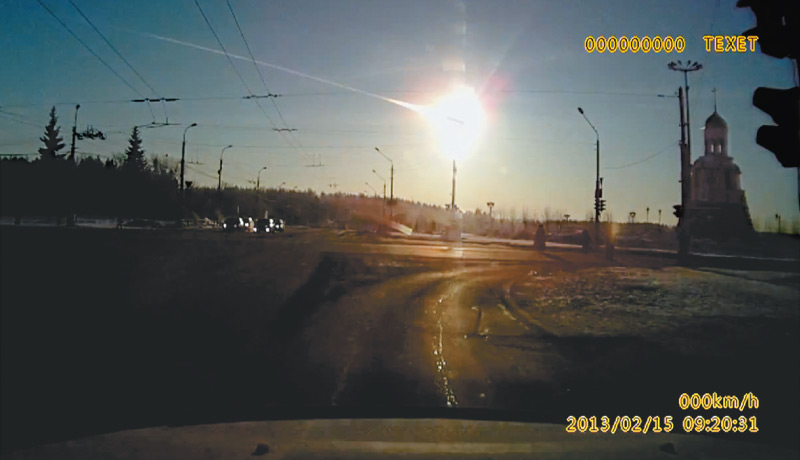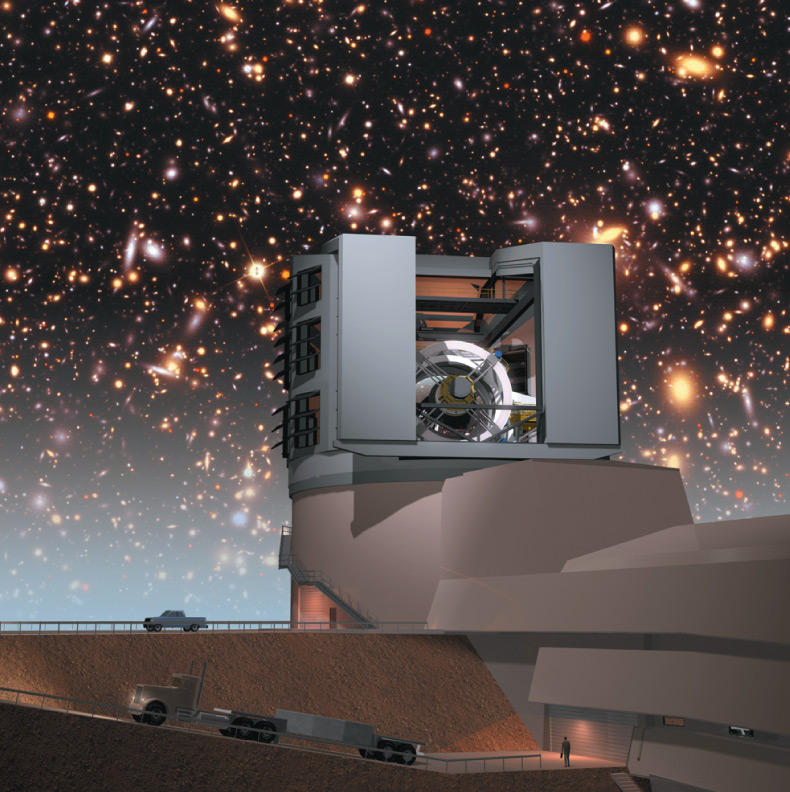Could an impact threaten humanity?
Impacts of asteroids or comets are much rarer in the solar system today than they were in the distant past, but they still occur on occasion. For example, in 2013, the people of Chelyabinsk, Russia got a huge surprise when they suddenly saw a brilliant flash of light as a previously undetected asteroid entered the atmosphere above them at a speed of more than 60,000 kilometers per hour (Figure 1). Later estimated to have been about 20 meters across, the asteroid exploded in the air (and therefore did not make a crater) with the power of a 500-kiloton nuclear bomb. More than a thousand people were injured, mostly by glass shattered by the shock wave, and meteorites from the shattered asteroid were found scattered across a wide area.

Figure 2 shows some of the devastation from an even larger asteroid in the year 1908. This impact, called the “Tunguska event” (named after the region in Siberia where it occurred), also involved a small asteroid exploding above the ground and therefore leaving no crater. Nevertheless, the power of the explosion flattened an area more than 50 kilometers across. Fortunately, so few people lived in the area that there were no known injuries. If the same impact had occurred over a major city, thousands or even millions of people might have been killed.

These examples show that we do indeed face a threat from impacts. For this reason, scientists are working hard to identify asteroids that could potentially hit the Earth. Most of these asteroids are fairly small, which means they are very difficult to detect even with powerful telescopes. Nevertheless, great progress is being made. In particular, the new Vera Rubin Observatory (Figure 3), scheduled to begin operations in 2022, is expected to be able to detect the vast majority of potential impact threats, so that we would have years of advance warning before a deadly impact occurred. The hope is that, with such warning, scientists would then be able to devise a plan to deflect the asteroid so that it would not hit our planet.
